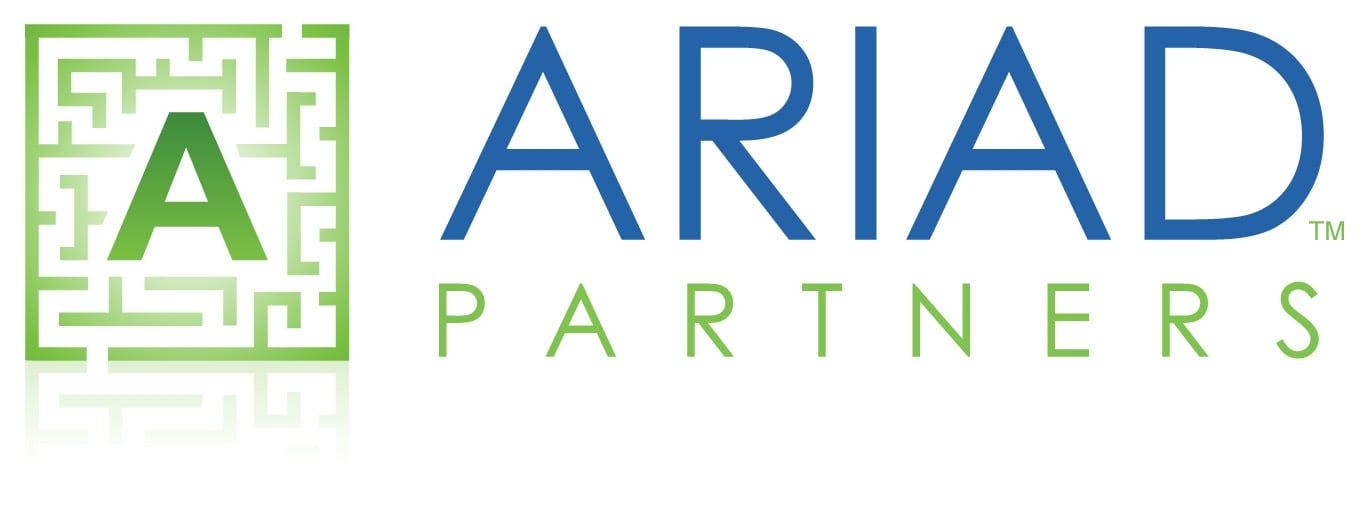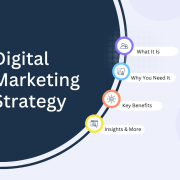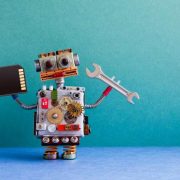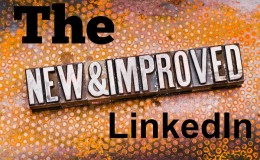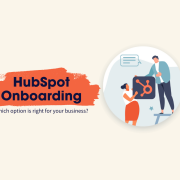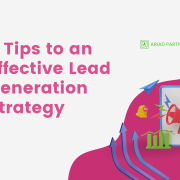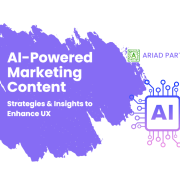Emerging Technologies – How to Use AI for Marketing
Creating great content and optimizing keywords isn’t enough anymore. To stay competitive, you need to know how to use AI for marketing.
AI has transformed how businesses attract, engage, and retain customers. It makes marketing more efficient, effective, and scalable. This guide shows you how to use AI for marketing and why it matters for your business.
What Is AI Marketing?
AI marketing uses advanced technology and machine learning to automate marketing tasks. It helps businesses:
- Make data-driven decisions
- Personalize customer experiences
- Improve marketing efficiency
AI analyzes massive amounts of data quickly. It finds patterns and insights that humans might miss. This leads to more effective and precise marketing strategies.
Why AI Marketing Matters Now
Content is king. Inbound marketing reigns supreme. And AI makes both work better.
Marketing teams use AI to streamline processes and create campaigns that convert. In 2024, AI is no longer optional—it’s essential.
What Marketers Say About AI
Salesforce surveyed marketers using generative AI. Here’s what they found:
- 76% use it for basic content creation
- 63% use it to analyze market data
- 53% say it transforms their SEO strategy
- 71% expect AI to eliminate busy work
- 51% currently use generative AI
- 22% plan to implement it very soon
The message is clear: AI gives marketing teams time to focus on strategy instead of repetitive tasks.
5 Key Benefits of AI for Marketing
1. Enhanced Personalization
AI creates highly personalized customer experiences.
How it works:
- Analyzes user behavior and preferences
- Studies historical data
- Tailors content and recommendations
- Suggests products based on individual interests
Results:
- Higher engagement rates
- Better conversion rates
- Improved customer satisfaction
2. Efficiency and Cost Savings
Automation is AI’s superpower.
Tasks AI handles:
- Email marketing
- Lead scoring
- Social media posting
- Routine data entry
Benefits:
- Frees marketers for strategic work
- Saves time
- Reduces human error
- Cuts operational costs
3. Predictive Analytics
AI accurately predicts future trends and customer behavior.
What AI can forecast:
- Customer demand
- Inventory needs
- Campaign performance
- Market trends
Advantage:
- Be proactive, not reactive
- Stay ahead of competitors
- Make smarter decisions
4. Deep Customer Insights
AI helps you better understand your audience.
What AI analyzes:
- Customer behavior patterns
- Purchase history
- Browsing habits
- Engagement data
How you benefit:
- Segment customers into distinct groups
- Craft targeted campaigns
- Deliver relevant messages
- Improve campaign ROI
5. Real-Time Decision Making
AI processes data at lightning speed.
Why this matters:
- Adjust strategies instantly
- Respond to current trends
- React to customer feedback quickly
- Keep marketing efforts relevant
Result: Your campaigns stay effective and timely.
Click to Download Our Free Lead Acceleration Guide!
How to Use AI for Marketing
-
1. Customer Segmentation and Personalization
Example: Amazon’s recommendation engine
Amazon uses AI to analyze customer data and suggest products. You can do the same.
How to implement:
AI-Powered Segmentation
- Use algorithms to examine user behavior
- Sort customers by browsing history
- Group by purchase patterns
- Create distinct customer segments
Personalized Recommendations
- Analyze individual preferences
- Suggest relevant products
- Increase engagement
- Boost sales
2. AI Chatbots for 24/7 Support
Example: IBM Watson
Customers expect instant help. AI chatbots deliver it around the clock.
What AI chatbots do:
- Answer questions instantly
- Guide users through purchases
- Provide support at any time of day
- Learn from each interaction
Benefits:
- Cost-effective support solution
- Improved customer satisfaction
- Better response times
- Continuous improvement over time
How to use them:
- Install AI-driven chatbots on your website
- Train them on common questions
- Let them learn from interactions
- Monitor and optimize performance
3. Predictive Analytics for Email Marketing
Example: Netflix’s email timing
Email marketing works best with perfect timing and relevant content. AI makes this possible.
Predictive Email Timing
- AI determines the best send times
- Analyzes when users open emails
- Increases open rates
- Improves click-through rates
Product Recommendations
- Personalizes email content
- Suggests products based on behavior
- Matches recipient preferences
- Boosts conversions
How to implement:
- Use AI-powered email platforms
- Analyze user behavior data
- Test different send times
- Personalize content for each segment
4. Social Media Ad Optimization
Example: Facebook’s ad platform
AI makes social media advertising more effective and efficient.
Audience Segmentation
- Target the right demographic
- Reach users most likely to convert
- Reduce wasted ad spend
- Improve campaign performance
Ad Spend Optimization
- Adjusts budgets in real-time
- Allocates money to top performers
- Maximizes ROI automatically
- Reduces manual monitoring
How to use it:
- Set up AI-powered campaigns
- Let AI optimize delivery
- Monitor performance metrics
- Scale successful campaigns
5. Content Personalization
Example: Netflix’s recommendation engine
Personalized content keeps users engaged and coming back.
User Behavior Analysis
- Track what content users consume
- Identify interests and preferences
- Suggest relevant content
- Improve user experience
Results:
- Higher engagement rates
- Better retention
- Increased satisfaction
- Stronger brand loyalty
How to implement:
- Use AI to analyze user behavior
- Create personalized content feeds
- Recommend relevant articles or products
- Test and refine recommendations
6. Marketing Automation
Example: HubSpot CRM
Marketing automation powered by AI saves time and improves results.
What it automates:
- Lead nurturing
- Content delivery
- Email sequences
- Customer journeys
Benefits:
- Scale marketing efforts
- Maintain personalization
- Save time and resources
- Improve efficiency
How to get started:
- Choose an automation platform
- Set up workflows
- Personalize based on behavior
- Monitor and optimize
Powerful AI Tool Integrations
6Sense + HubSpot
What 6Sense does:
- Uses predictive analytics
- Identifies potential customers
- Prioritizes leads
- Analyzes buyer intent signals
How it helps:
- Focus on prospects ready to buy
- Align marketing and sales
- Improve lead generation
- Increase conversion rates
Drift + HubSpot
What Drift does:
- Enables conversational marketing
- Uses AI-powered chatbots
- Provides real-time messaging
- Personalizes interactions
How it helps:
- Nurture leads instantly
- Accelerate the sales cycle
- Provide tailored information
- Improve customer experience
Start Using AI for Marketing Success
AI is no longer optional for competitive businesses. Customers expect:
- Personalized experiences
- Instant access to information
- Relevant recommendations
- Fast responses
AI delivers all of this while:
- Improving efficiency
- Making data-driven decisions
- Scaling your marketing efforts
- Reducing costs
Ready to Get Started?
AI can transform your marketing. Here’s what to do next:
- Identify your biggest challenges
- Where do you spend the most time?
- What tasks are repetitive?
- Where could automation help?
- Choose the right tools
- Start with one area
- Test AI solutions
- Measure results
- Implement and optimize
- Train your team
- Monitor performance
- Adjust strategies
Need help getting started? Contact our team to learn how you can leverage AI for your business. We’ll show you how to use AI to reach new heights with your marketing strategies.
